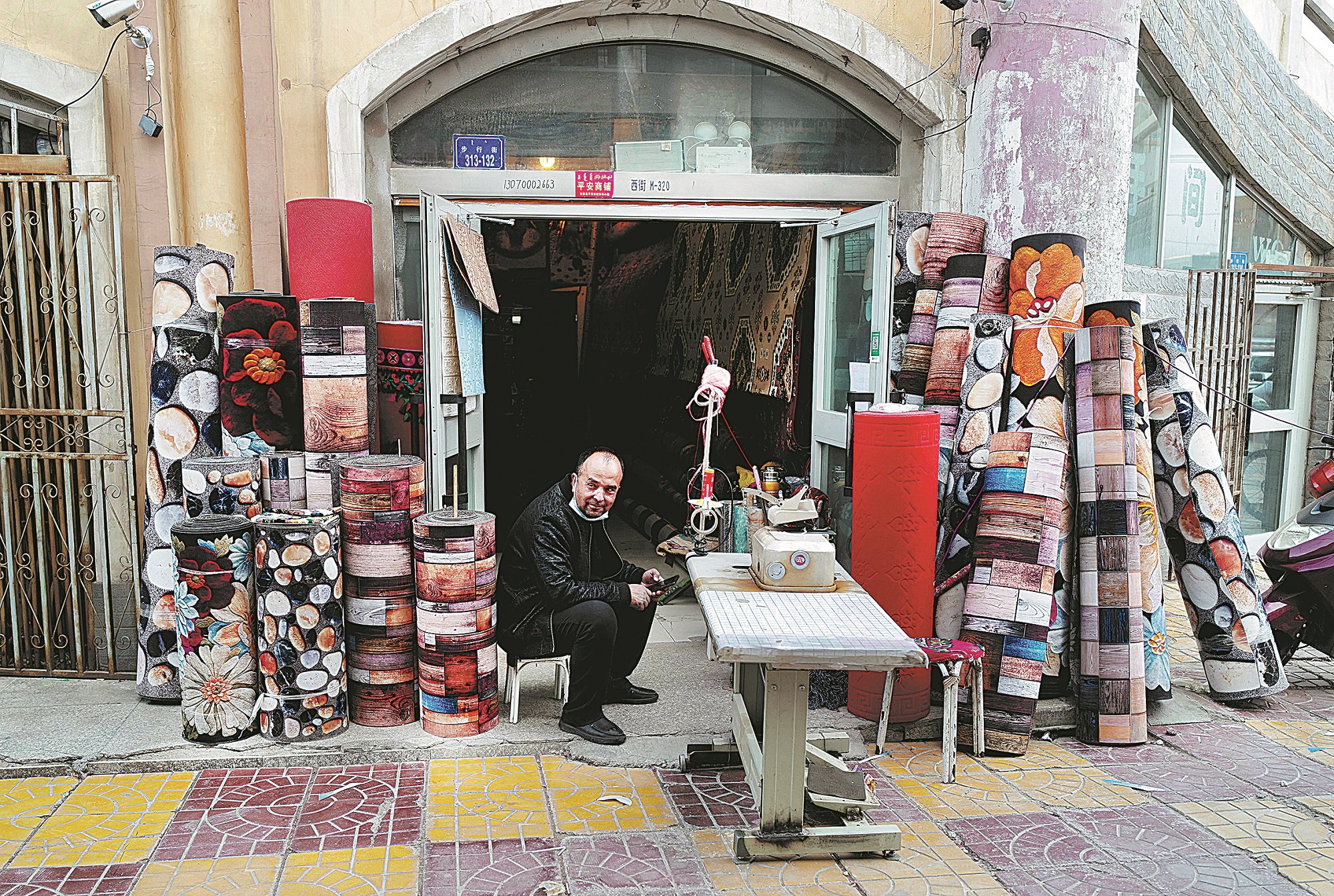Xinjiang prevents return to poverty

A man tends business at a store in Hejing county, Xinjiang Uygur autonomous region, in April. [Photo/CHINA DAILY]
The Xinjiang Uygur autonomous region has improved its monitoring and aiding mechanism to consolidate the results of poverty-alleviation work, making sure that no local resident will be plagued by poverty again.
According to the region's rural vitalization bureau, the region has arranged inspection visits to about 12 million village residents from May to June, among whom 773,600 are recognized as key groups who need continuous help although they are already lifted out of poverty.
The key groups include those facing sharp decreases in income due to severe disease, natural disasters, epidemics or problems such as living in dilapidated houses and lack of drinking water.
The bureau said that the region has tailored measures for those key groups by stabilizing their jobs and guaranteeing their basic needs.
For example, for those severely disabled and who lost their ability to work, the region offers them minimum living allowances. The bureau said that, so far, nearly 99 percent of the people in the key groups have received help from the government.
Nyima Tsering, from the region's Hejing county, lost his income earlier this year as his homestay business was suspended due to the COVID-19 epidemic. His financial condition got worse after his second baby was born and his wife couldn't work while breastfeeding.
He then reported his difficulties to the village and was included into the key group by the local government in June.
To help him get a stable job, the local government arranged for him to learn welding skills at the county's vocational school and introduced him to an iron workshop after he finished training courses.
He now has a rather stable monthly salary of about 5,000 yuan ($785).
The rural vitalization bureau said that promoting the key groups to get stable jobs is a good way to prevent them from being trapped in poverty again, so the region has made great efforts to organize residents to learn working skills and help them land jobs.
Since earlier this year, about 11,400 residents facing the risk of returning to poverty have received skills training with allowances of about 67 million yuan allocated. For example, 436 of them were trained to make clothes and 314 to drive farm equipment.
On March 20, 2020, the former Leading Group of Poverty Alleviation and Development of the State Council released a guideline to establish a monitoring and aiding mechanism to prevent formerly impoverished people from returning to poverty.
Extreme poverty in China was eliminated by the end of last year, while more calibrated measures have been introduced to help those families who are vulnerable to emergencies, disease and disasters and are facing risks of returning to poverty.
It said that establishing and improving the monitoring and aiding mechanism is effective to consolidate poverty-alleviation work, which is a good way to prevent poverty.
Mao Weihua in Urumqi contributed to this story.
 Attractions
Attractions Dining
Dining Culture
Culture